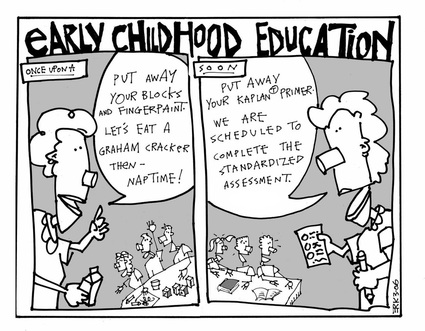Don't Panic!!
Good judgment comes from experience, and experience comes from bad judgment.
—Barry LePatner

So, you've decided to homeschool after weeks, months, maybe years of wondering whether or not you can manage it. You've poured over every curriculum that you can find, purchased workbooks or kits or books that promise academic perfection. You've researched your state's laws, you've decided on a teaching style, you've completed learning style inventories, and perhaps have even found a group or two. You envision orderly, sun-filled days where little Mary or Joseph greets you happily, does his or her chores and then skips joyfullly to the designated workspace, hands folded neatly, waiting eagerly for your words of wisdom. And don't get me wrong, some people have those magical, fairy tale lives where bluebirds sing, mice do chores and everyone whistles happily while they work. Then there are the rest of us. The ones whose children scream for television or video games, who agree to work and yet 5 hours later have gotten nothing accomplished, who wail and moan that the work they have been doing since birth is now too hard. Those of us who find the line between home and school, parent and teacher to be more of a tightrope, complete with balls to juggle and hoops to jump through in the journey between the beginning and the end of the day, those of us, the frazzled, might wonder whether or not we've made a dreadful mistake. Everyone is telling you to relax and breathe, but all you can manage is a raspy wheeze in between sobs. So, what do you do?
The first thing you should do is take a step back, get out a pad of paper (if you're an old fogey like me) and start to write things down. Ask yourself a few key questions:
Our schools are limited only by our imaginations. We are not confined by walls or by prescriptive methods. Our children can learn at their own pace, in their own time. So, learn how to bend without breaking. Be willing to make a complete and utter fool of yourself. Make extravagant mistakes and learn from them. And remember that change is not a sign of failure, it's an indication of growth.
Now, say you've bent so much that you could win a limbo contest from that permanent crick in your back, or you've about-faced so many times that you've worn a hole in the carpet and you still feel like you're barely keeping your head above water (to mix as many metaphors as possible). Your anti-homeschool friends and family are starting to smell blood in the water, and they're circling you like hungry sharks. One gets close enough to sink a sharp "I told you so" into your arm. Another comes from below to chomp a "They need more socialization" chunk out of your leg. You're starting to feel weak and woozy, and brick and mortar school is starting to look pretty good to you. What should you do?
So, the next time you start casing your local school, wondering if they'd really notice if you dropped your child at the front door and then raced away, tires screaming, remember that this too shall pass. Integrating home and school is not easy, and it has the tendency to magnify everything that works and doesn't work in your family dynamic. Therefore, as you work out the kinks in your school relationships with your kids, you forge a stronger bond that will last a lifetime.
The first thing you should do is take a step back, get out a pad of paper (if you're an old fogey like me) and start to write things down. Ask yourself a few key questions:
- What is important to you in your relationship with your child?
- What does being a parent look like? What does being a teacher look like? If they're not the same thing, then how can you take what is good from both of them and incorporate it into your day?
- What does learning mean to you and what kind of activities or hobbies bring you joy when you do them? What brings your child joy? Is joy a part of your school?
- Finally, if you think of your child having grown to adulthood, what values do you hope s/he will have gained from your daily interactions?
- Once you've done all the hard introspective work, take a hard look at your curriculum. Is it your vision of what you want, or have you imposed someone else's expectation of what learning should look like onto your school?
Our schools are limited only by our imaginations. We are not confined by walls or by prescriptive methods. Our children can learn at their own pace, in their own time. So, learn how to bend without breaking. Be willing to make a complete and utter fool of yourself. Make extravagant mistakes and learn from them. And remember that change is not a sign of failure, it's an indication of growth.
Now, say you've bent so much that you could win a limbo contest from that permanent crick in your back, or you've about-faced so many times that you've worn a hole in the carpet and you still feel like you're barely keeping your head above water (to mix as many metaphors as possible). Your anti-homeschool friends and family are starting to smell blood in the water, and they're circling you like hungry sharks. One gets close enough to sink a sharp "I told you so" into your arm. Another comes from below to chomp a "They need more socialization" chunk out of your leg. You're starting to feel weak and woozy, and brick and mortar school is starting to look pretty good to you. What should you do?
- Check your expectations. Most parents understand that their child is not going to spring from the womb able to communicate in full sentences to tell you when s/he needs to eat, sleep or be changed. We are tolerant of the seemingly endless bouts of crying because we know that it is an appropriate form of communication for an infant. Similarly, if your expectations are too high and you are asking your child to do more than s/he is capable of handling, you will be informed in a usually loud, if not quite clear fashion. Tantrums, passive aggressive resistance, stalling, screaming and a general bad attitude can all be signs of a kid that is overwhelmed. Having expectations that are too low, ironically, can also cause the same kinds of negative behaviors. Self-esteem develops when we face challenges and overcome them. When the challenges are not worthy of our abilities or when we are praised overly much for accomplishments which require no effort, we begin to doubt that we are capable of doing anything on our own at all. So, children who are under-stimulated and over-praised feel just as overwhelmed as those who are overstimulated.
- Check your schedule. Give me a date planner, and I'm dangerous. I believe that I should be able to fill every single moment of the day with with something IMPORTANT to do. Which does not always include play. Or eating. Or bathroom breaks. I was that little girl who twirled around the living room or started fires in the yard when exhausted, at least until I stood still long enough to collapse into a heap. My kids have followed in my footsteps, and left unchecked, it would be us and the Energizer Bunny going and going and going until we would be so miserable that we couldn't stand ourselves let alone each other. What's worse is that in spite of our desire to do all things social and educational, we are a bunch of introverts who find contact with the outside world draining. So, it is important to cultivate balance. Which means emphasizing quality of experiences over quantity of experiences. The other side of the coin is that you can have too few activities or too little variety in your homeschool routine. You may be one of those people who can eat plain oatmeal every single day for breakfast, but chances are your child will want a little variety. If you feel as though you're stuck in a rut, it is likely that you need to find a way to add some va to your voom. One way to accomplish this, empower your child, and reignite a passion for learning is to give your child a measure of autonomy when it comes to the schedule. Some people use a workbox system (a' la Sue Patrick) or allow their kids to draw assignments from a can, or have a modular schedule (like college) where different subjects are taught on different days. If variety is indeed the spice of life, then it is up to you to determine just how spicy your optimal schedule should be.
- Check your consistency. We've all been there. Little Junior is sprawled in the middle of the cereal aisle of the grocery store screaming at the injustice of not being allowed to knock all of the boxes from the shelves. His voice resonates through the store so loudly that you feel the walls shake from the reverberations. In fact, you are positive that he is so loud that at any moment the human race will make first contact with an alien species drawn to the Earth from a galaxy far far away by your child's shrieks. Your chest constricts, your face flushes, and you hear yourself telling your child that you will never, ever leave the house with him again. You somehow make it out of the store without the police being called, and the very next day you and Junior (who is being the sweet angel you knew he could be) are out of the house again. Only, Junior has learned something from you which you probably didn't intend. He's learned that your threats are empty and time is on his side. Eventually Junior will become a master of distraction, misdirection, scorn, disdain, flattery, wheedling, and obstinacy. Consequences for negative behaviors need to be clear, immediate, reasonable, enforceable and instructive. This means that your children need to know what your expectations are, why you have them, and which specific consequences arise from a failure to cooperate.
- Check your communication. com·mu·ni·ca·tion. noun. \kə-ˌmyü-nə-ˈkā-shən\: a process by which information is exchanged between individuals through a common system of symbols, signs, or behavior. <http://www.merriam-webster.com/dictionary/communication> It is easy to assume that if we are providing our children with direction, we are communicating something useful to them. And this assumption is confirmed all day long as we tell our children not to put rocks up their noses, or throw baseballs near windows, or jump off of tables, chairs, beds or stairs or otherwise cause their own early demise. However, true communication involves shared perspectives. What this means in terms of homeschooling is not that your children have to rule the roost, but that they gain a sense of empowerment that will translate into an eagerness to work. Giving your children choices and including them in the conversation about their education helps them to be able to learn to think for themselves. Furthermore, it teaches them about the consequences of their choices. And, it will provide you with leverage for the rest of their lives. "Remember that time you decided you were going to live in a yurt in the back yard . . ." Most important, though, allowing your children to make choices, set goals and follow through on them gives them a sense of self-worth. Help make sure the goals are realistic and measurable, and once they are attained, don't be afraid to acknowledge and reward your kids' hard work.
- Check your reality. In an age where we can talk to someone around the globe in an instant, we have become oddly isolated from the people right next to us. Neighborliness is a dying practice and, as a result, we have few ways outside of the images we see in the media to test whether or not our experiences are "normal." Moreover, while the internet can be helpful, it can also be a source of conflicting information. It helps to be able to talk to people and have them talk you down from the ledge. Before homeschooling my kids, I used to teach basic literacy skills to teens and adults. One would think that having this teaching experience would put me in a better position to teach my own child. Nevertheless, when I would ask my son to complete what to me were simple assignments when he was in the third grade, he balked, squawked, talked (rudely!) and walked. I was confused since my son clearly comprehended the material and was able to talk about it in a manner that would have more than satisfied the writing assignment. It seemed to me, therefore, that what I was dealing with was an issue of character rather than a lack of ability. Fortunately for the both of us, I had a number of wise women around me who gently informed me that I had ridiculous expectations for a boy his age. We all know that children don't come with operations manuals. We are constantly shifting and adapting our parenting to the situation, the age of the child, our material circumstances and more. Homeschool is no different. Find people that you can talk to. Find your village. Find your support.
- Check your checks and balances. Behavior modification involves making the implicit explicit and assigning weight or value to behavior. *You* might know that "do your math" means complete 10 math problems from Chapter 3 and show your work. *You* probably understand that "clean your room" means that one should be able to walk through the room without tripping over debris once the cleaning is complete. *You* probably understand that "be honest" does not include telling the cashier that the hairs growing out of the mole on her chin are ugly. However, if you've ever asked your child why s/he did something, it becomes clear that your version of logic differs widely from kid logic. Charts, schedules, sticker books, and checklists are all tools which help you to be able to have a consistent list of expectations for your kids. When combined with reward systems where desirable things (screen time, money, stickers, privileges, treats) are earned via positive behavior and lost for negative behavior, you can train your child to produce the behaviors that you want. It also minimizes conflict because the consequences have been established ahead of time, and are not debatable. You are not "Mean Mom" or "Mean Dad," you're more Vanna White pointing at what's there.
So, the next time you start casing your local school, wondering if they'd really notice if you dropped your child at the front door and then raced away, tires screaming, remember that this too shall pass. Integrating home and school is not easy, and it has the tendency to magnify everything that works and doesn't work in your family dynamic. Therefore, as you work out the kinks in your school relationships with your kids, you forge a stronger bond that will last a lifetime.
When everything goes without a hitch, where's the challenge, the opportunity to find out what you're made of? --Shania Twain
Trains and Brains Are Not the Same
When I was 29 years old, I thought the world was coming to an end. Perhaps not literally, but certainly figuratively. I spent almost half a year fretting and wringing my hands all because I imagined that there had to be some magical transition between 29 and 30. There had to be some mystical tribunal who would weigh my heart on the eve of my birthday and determine whether I had completed my "before 30" requirements on my way to becoming a full-fledged adult. And since I had recently become insignificant to my most significant other; and since my life a a retail wage slave was less than fulfilling; and since my crumbling health and decimated finances left me dependent on others, I assumed that I was behind schedule somehow and, therefore, unequipped to deal with the path that lay ahead. Now that I am on the cusp of my 50s, happily married with two amazing children, I find the concerns of my former self laughable in an endearing sort of way. It seems ridiculous for me to have ever believed that if I wasn't at a certain point in my life by the time I reached 30, then I would never be able to catch up and be the adult that I needed to be. Most people, particularly those over 30, would agree with me. Nevertheless, I field at least a question a day from some panicked homeschooling parent who is worried that their child is behind.
|
The fear is completely understandable. Like the me of my past, these parents harbor a set of preconceived notions about what a child's progress or success looks like. They have bought into the idea that child development is like waiting for a train: the schedule is out there and, consequently, each kid who arrives at a particular level must be either early, late or on time. This has profound consequences for children who are in school and for the teachers who must try to make children conform to the one size fits all educational model. It seems more than a little coincidental that the word "tracking" is so frequently applied to the process of determining a child's process from one grade to the next.
|

One of the biggest limitations of school is that teachers are given so few tools to work with, and from these limited tools, they have to build a curriculum that will engage and inform a classroom full of children who are radically different from one another. In order to make this feasible, all of the children must arrive at the station at the same time and be prepared to leave on time, fully loaded with whatever they need to carry them to the next stopping place. Failure to arrive on time reflects poorly on the conductors and the engineers. It is for this reason that arbitrary, but testable, standards are set so those who fall outside of the norms can be identified and corrected. It is very difficult for educators to be able to differentiate between an earnest academic need of a student and the academic needs of the system. If we consider infant development, it is easy to see that children begin walking and talking at different rates, and there is a broad range of what constitutes "normal." In schools, however, this range is diminished simply because assessments to determine whether or not a child is learning are dependent upon every child gaining the skills necessary to take to test at the same time. Most parents lament the resulting loss of childhood, but are willing to accept this loss if it means their child is on schedule.
All parents who are invested in the welfare of their children would like to see them thrive. Most homeschoolers have given a considerable amount of thought how best to satisfy and balance all of the needs of their children, and have come to the conclusion that the answer to this lies in challenging conventions, even if this means that they replicate school at home. For many, however, there is still that niggling worry that their children might arrive late at the station and miss the train to happiness and prosperity. These parents want their children's education to come complete with "best learned by dates" and lists of school subject ingredients so that they can combine them to make the perfect adult. These parents are voracious readers of the what to know when series and fret over having the perfect book or program or drill so that their kids can learn just like the kids in school. And therein lies the rub. Homeschool opens up an entire map complete with waterways and airways and highways and byways in addition to the tracks that everyone else is travelling upon. There are so many ways to get to the station, beyond the station or to avoid the station completely that the worry about being on schedule loses much of its meaning. The schedule, rather than being an externally imposed timeframe becomes, instead, a response to the needs, interests and abilities of the child.
I am not suggesting that there is no place for keeping track of your children's progress nor and I saying that there are not moments where your child might need a little more help. Instead,I am suggesting that attaching value to how fast or slowly your child is moving along the track is detrimental to his or her psyche. Some kids meander, and some kids race, and not all children (just like not all adults) have the same ultimate destination.
A great deal of life has happened in the span of days between the beginning of my 30s and the end of my 40s, and all of my worries about whether or not I have developed as much as I should have to meet the stage of life that I am in have disappeared. I am equally as certain that I still have a lot to learn as I am that I will learn what I need to know in my own time. So, as I watch my own children dawdle and race, run and ramble, meander and march straight forward double time, I am confident that they are where they need to be and will get where they are going right on their own time.
A great deal of life has happened in the span of days between the beginning of my 30s and the end of my 40s, and all of my worries about whether or not I have developed as much as I should have to meet the stage of life that I am in have disappeared. I am equally as certain that I still have a lot to learn as I am that I will learn what I need to know in my own time. So, as I watch my own children dawdle and race, run and ramble, meander and march straight forward double time, I am confident that they are where they need to be and will get where they are going right on their own time.

